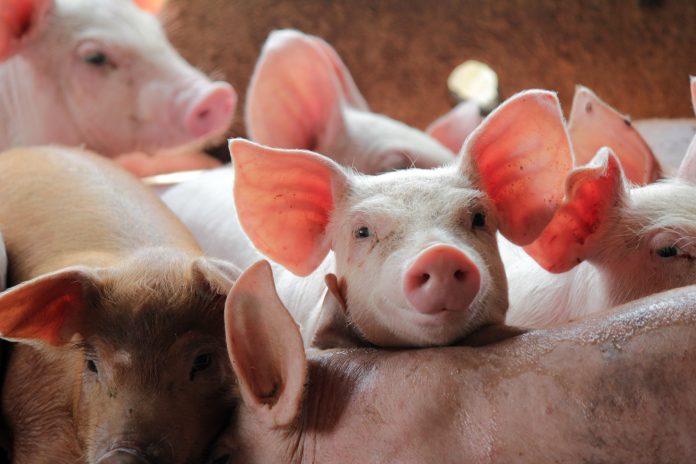
As The Global Pandemic Exposes Dangers In The Meatpacking Industry, Sen. Warren & Rep. Khanna Cosponsor Sen. Cory Booker’s ‘Farm System Reform Act’
By Lauren Lewis
You can help all animals and our planet by choosing compassion on your plate and in your glass. #GoVeg
RELATED ARTICLES
Banning Cruelty: New Legislation Aims To Ban Octopus Farming In The U.S.
New bipartisan legislation has just been introduced in the U.S. to ban commercial octopus farming and prohibit imports of farmed octopus from foreign countries.
The...
Outrage In Yellowstone! Grizzly Bear Killed By Wildlife Officials & Left With Head & Paws Cut Off
Photo by: Trisha McFarland / Cowboy State Daily
A photo of a dead grizzly bear with its head and paws cut off has caused an...
Inside Florida’s Illegal Horse Meat Trade: Undercover Footage Shows Racehorse Being Shot & Butchered
A heart-wrenching discovery of illegal horse slaughter has emerged, with video footage exposing the tragic killing of a racehorse named 'Funny Biz,' who was...
Popular stories
News
Bill To End The Suffering Of Wild Animals In Traveling Circuses & Performances In The U.S. Is Being Reintroduced To Congress Today
A bill amending the Animal Welfare Act to prohibit the use of exotic and wild animals in traveling performances in the U.S. is being...
Industry News
Humane Society International Saves 70 Dogs From South Korean Dog Meat Farm & Helps Farmer Transition To Growing Vegetables Instead
Photos By: Humane Society International
More than 70 dogs found languishing on a South Korean dog meat farm by Humane Society International (HSI) have been given...
Breaking News
Legal Action Aimed At U.S. Fish & Wildlife For Failing To Protect Hippos Under The Endangered Species Act
Animal protection and conservation groups sent notice today of their intent to sue the U.S. Fish and Wildlife Service for missing its deadline to...


